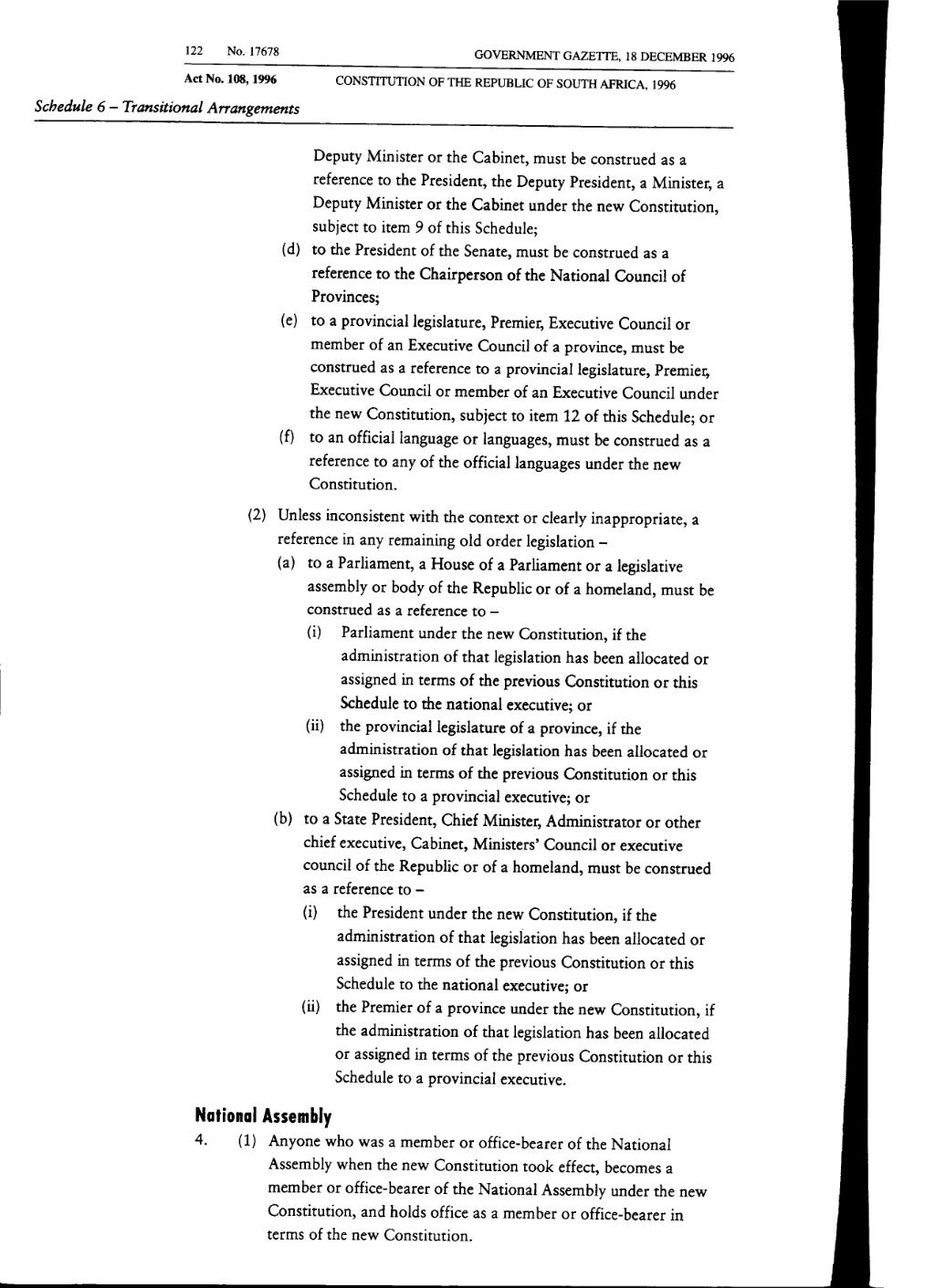This page has been validated.
122 No. 17678
Government Gazette, 18 December 1996
| Act No. 108, 1996 | Constitution of the Republic of South Africa, 1996 |
Schedule 6—Transitional Arrangements
Deputy Minister or the Cabinet, must be construed as a reference to the President, the Deputy President, a Minister, a Deputy Minister or the Cabinet under the new Constitution, subject to item 9 of this Schedule;
(d)
to the President of the Senate, must be construed as a reference to the Chairperson of the National Council of Provinces;(e)
to a provincial legislature, Premier, Executive Council or member of an Executive Council of a province, must be construed as a reference to a provincial legislature, Premier, Executive Council or member of an Executive Council under the new Constitution, subject to item 12 of this Schedule; or(f)
to an official language or languages, must be construed as a reference to any of the official languages under the new Constitution.(2)
Unless inconsistent with the context or clearly inappropriate, a reference in any remaining old order legislation —(a)
to a Parliament, a House of a Parliament or a legislative assembly or body of the Republic or of a homeland, must be construed as a reference to —(i)
Parliament under the new Constitution, if the administration of that legislation has been allocated or assigned in terms of the previous Constitution or this Schedule to the national executive; or(ii)
the provincial legislature of a province, if the administration of that legislation has been allocated or assigned in terms of the previous Constitution or this Schedule to a provincial executive; or(b)
to a State President, Chief Minister, Administrator or other chief executive, Cabinet, Ministers’ Council or executive council of the Republic or of a homeland, must be construed as a reference to —(i)
the President under the new Constitution, if the administration of that legislation has been allocated or assigned in terms of the previous Constitution or this Schedule to the national executive; or(ii)
the Premier of a province under the new Constitution, if the administration of that legislation has been allocated or assigned in terms of the previous Constitution or this Schedule to a provincial executive.
National Assembly
4.
(1)
Anyone who was a member or office-bearer of the National Assembly when the new Constitution took effect, becomes a member or office-bearer of the National Assembly under the new Constitution, and holds office as a member or office-bearer in terms of the new Constitution.